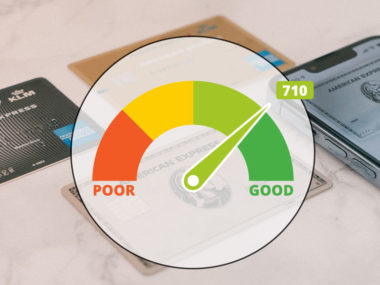Credit is an integral piece of the modern financial tool chest. In many instances, it can be the deciding factor for whether you qualify for a variety of different things. That’s why it’s important to establish good credit right from the get-go or, if you weren’t able to do so, to repair your credit as soon as possible.
Having good credit opens you up to a slew of different possibilities. From loan approval to negotiating power, housing to employment, here are a few of the most important ways that a good credit score can help you through major life events.
Table of Contents
Lower Interest Rates
Interest rates are the amounts of money, expressed as percentages of loan amounts, that you will pay to lenders over the course of any loans you take out. Your credit score can significantly impact the rate of interest that you may be required to pay when borrowing money.
For instance, the average rate for a car loan for a borrower with good credit is typically around 5%. In comparison, if your credit score is fair, the interest rate for a car loan quickly spikes to nearly 12% and surpasses 18% when your score is below 650.
Higher Chances of Loan Approval
If you have bad credit you may not be able to be approved for a loan in the first place, regardless of the interest rate.
For instance, if a borrower with bad credit tries to get approval for a mortgage, they will likely need to include a hefty down payment and pay a higher interest rate. Even then, they may have to shop around to a variety of different lenders before they can find one willing to provide the funds.
However, good credit stands as a testimony to your financial acumen and smooths the path to loan approval.
More Negotiating Power
If you have good credit, you won’t need to spend as much time scrounging around for a lender who is willing to provide a loan. Your good credit score will likely put you in a powerful negotiating position.
Rather than needing to look far and wide for any lender who is willing to give you a loan, you can use your good credit to shop for competitive rates. At times, you can even use good credit to bring a lender to the bargaining table.
For example, when applying for a loan, your bank may offer you an interest rate that seems high. A good credit score gives you recourse to negotiate the matter, as it establishes that you are a desirable asset and gives you the clout to push back against an unpleasant contract.
Approval for Higher Limits
Even if you’re approved for a loan or a credit card, at some point, your lender will cap the amount of money that can be borrowed. Typically this borrowing capacity will depend on things such as your income and your credit limit.
With good credit, you can expect to be approved for higher borrowing capacity limits, such as a $10,000 limit on a credit card instead of $5,000.
Qualifying for Credit Card Rewards
The financial world is awash with countless credit card rewards programs. However, many of the best of these require good credit if you want to qualify.
If you are able to maintain a history of good credit, you’ll qualify for specific credit cards that offer better interest rates, excellent cash-back programs, and a variety of other high-value rewards.
Higher Chances of Approval for Housing
If you prefer to rent your home, you’ll find it much easier to be approved for a house or apartment if you have a good credit score backing you up.
Landlords will often use an individual’s credit score in the screening process as a consideration for whether they should accept them as a tenant. This is because your credit score indicates how you handle money and how you’ve behaved regarding debts in the past.
Refinancing Loans
In the same vein as opening up a new loan, a good credit score can be a financial boon if and when the time comes to refinance a pre-existing loan, such as student loans or a mortgage.
Having a good credit score can both expedite the loan approval process and ensure that you qualify for the best interest rate possible.
Pay Less in Security Deposits
Security deposits are a common occurrence. You may find that you’re faced with a security deposit when you sign up for utilities, transfer utilities between locations, or sign a lease for an apartment.
At times security deposits may be a huge inconvenience. Coming up with a month or two of rent in advance during a move can be draining on your funds and putting $100 to $200 down in order to turn on the electricity or gas is a bother.
Having good credit can often minimize the size of a security deposit and can even, at times, eliminate them entirely.
Employment
While your ability to make payments, balance debt, and get a loan may be personal, at times it can spill over into your professional life as well — and when it does, having good credit can make a big difference.
Case in point: when you apply for a new job. Some employers will request a credit check before hiring a candidate in order to observe their credit history. This can indicate patterns of behavior (either responsible or negligent) and can throw up red flags, such as bankruptcy or missed payments, that could influence your candidacy.
When an employer requests a credit check, having a healthy credit score is a valuable testament to your trustworthiness and capability as a potential member of their team.
Image Source: https://depositphotos.com/





